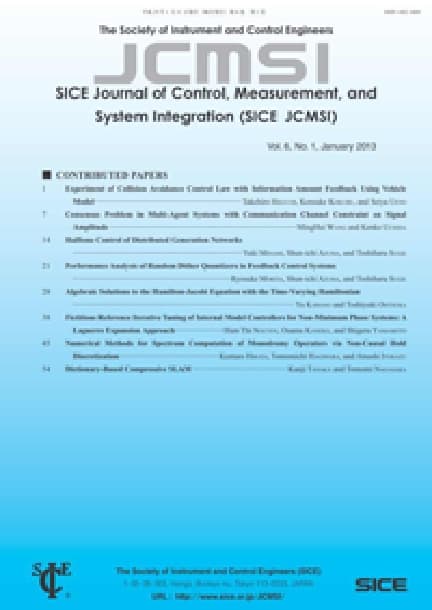Experimental Study on Microassembly by Using Liquid Surface Tension
Yasuhiro KATO, Takeshi MIZUNO, Hiroshi TAKAGI, Yuji ISHINO, Masaya TAKASAKI
pp. 309-314
DOI:
10.9746/jcmsi.3.309Abstract
This research studies the use of a water drop to pick up a minute object for manufacturing small electric devices. The method can align the center of an object with the center of the nozzle even if there is a deflection between them initially. This is called a self-centering effect. The relationship between the size of the water drop and the parameters of storing water in the nozzle is studied experimentally. The time for drawing water into the nozzle and the pressure provided to the nozzle are investigated as parameters, and the conditions in which the formed drops become hemispherical are clarified. To prove the feasibility and efficacy of the proposed process using a hemispherical drop, experiments on picking up a resistor chip and spherical and cylindrical objects are carried out. The self-centering effect is investigated by varying the deflection of an object from the center of the nozzle. It is also confirmed that the self-centering effect leads to virtually zero deflection remaining after the object is picked up.









